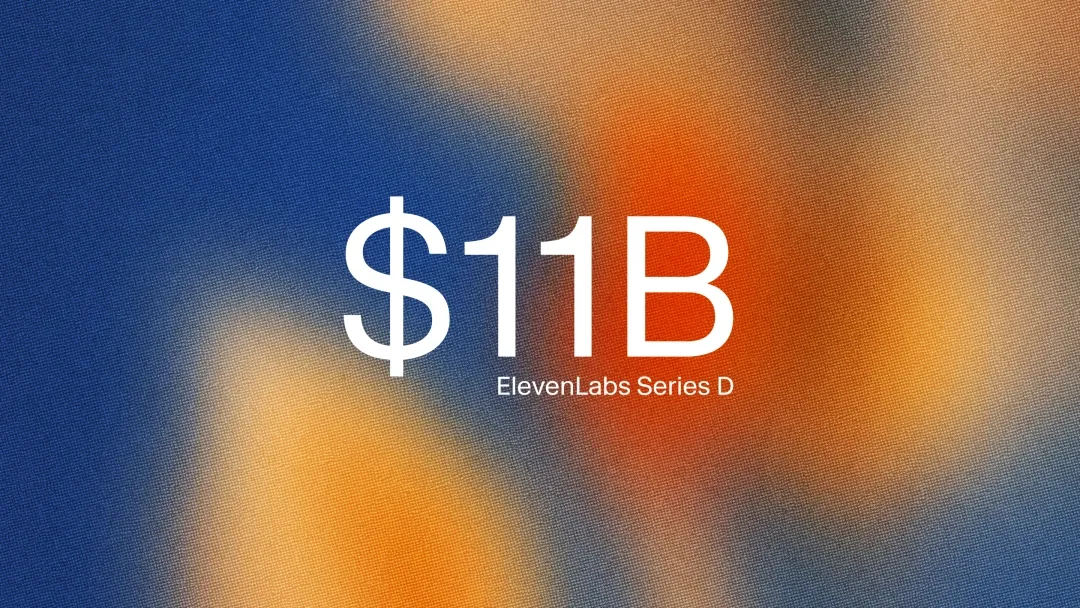This week's highlight is that not one, but two high-profile AI companies announced extraordinary measures to keep afloat and leadership changes. Early in the week, Stability AI announced, in a very concise statement, that it had secured a major investment and a brand new CEO. The announcement identified the top-tier institutions and tech leaders involved in the deal.
The attention was drawn away from details such as the amount and conditions of the investment and refocused on the popularity of its models and services as well as on the leadership changes: Stability AI's statement was clear to welcome Prem Akkaraju as CEO and Sean Parker as the new Executive Chairman of the board and to disclose that the newly appointed CEO, Dana Settle, co-founder and Managing Partner of Greycroft, and Colin Bryant, COO of Private Investments and General Partner of Coatue Management, would all join Stability AI's board.
Regardless, reports quickly emerged detailing that the investment totaled about $80 million and that the investors had negotiated about $100 million in standing debts as well as a $300 million release from future obligations as measures to keep the company afloat as new avenues to keep Stability AI profitable were explored.
By the week's end, Adept released a statement explaining that it was undergoing significant leadership changes as it also refocused its business strategy. Briefly put, Adept announced it would no longer fundraise to maintain its multimodal foundation models, focusing instead on exclusively developing agentic AI solutions. The company also shared that Amazon would license Adept's agent technology, multimodal models, and select datasets and that Adept's co-founders and some of its team members would join Amazon's AGI team. Consequently, former Head of Engineering Zach Brock became Adept's new CEO, while Tim Weingarten remains Head of Product.
It may be unwise to draw too many lessons from the fact that two well-funded AI companies suddenly got into a rough spot. However, there is a case to be made that both stories showcase the climbing costs of model training and deployment as the demand for data and computing power continues to rise at a pace impossible to match by the supply.
Other notable headlines this week include:
OpenAI has bought the Zoom-based collaboration platform Multi: OpenAI acquired Multi, a collaborative AI workspace platform, shortly after its Rockset acquisition, potentially to enhance its enterprise offerings and compete with Anthropic's Artifacts, as nearly the entire Multi team joins OpenAI and the platform plans to sunset its services by July 24, 2024.
Synthesia platform upgrade brings full-body avatars, new AI Video Assistant features, and more: Synthesia 2.0 aims to revolutionize business video communications with enhanced AI avatars, an improved AI Video Assistant, a new AI Screen Recorder, advanced translation capabilities, and an interactive video player, all while prioritizing AI safety and responsible development.
Google is enabling Gemini access to teens in their Workspace for Education accounts: Google is expanding Gemini access to younger education users with enhanced safety features, while also introducing new AI-powered tools like Learning Coach, Read Along, and LearnLM-powered features to support personalized learning experiences and assist educators in content creation and management
The Recording Industry Association of America is suing Suno AI and the developer of Udio: The Recording Industry Association of America (RIAA) has filed lawsuits against Suno AI and Uncharted Labs (Udio AI), alleging copyright infringement, seeking injunctions and damages, with the potential to set a precedent for the use of copyrighted material in AI training and generation.
Yelp is incorporating more accessibility business attributes and rolling out AI-powered accessibility features: Yelp has introduced new accessibility features, including AI-powered alternative text for images and searchable attributes, to serve users with mobility, hearing, and vision disabilities adequately and help businesses become more inclusive.
Etched unveiled Sohu: the world's first transformer-specific AI chip: Etched has unveiled Sohu, a revolutionary AI chip specialized for transformer models, claiming unprecedented performance and efficiency that could significantly accelerate AI development and deployment across industries.
Google rolls out a Gemini side panel to Docs, Sheets, Slides, Drive, and Gmail: Google is rolling out Gemini AI integration across Gmail, Docs, Sheets, Slides, and Drive, offering advanced AI-powered assistance for various tasks directly within these productivity tools.
OpenAI has changed the release timeline for the revamped ChatGPT Voice Mode: OpenAI has delayed the release of ChatGPT's new Voice Mode by at least a month to improve content detection and refusal capabilities, with plans for a limited alpha launch in late July followed by a broader rollout to Plus users by fall 2024.
Two startups in the drug development market secured major investments: AI-driven biotech startups EvolutionaryScale and Formation Bio have raised $142 million and $372 million respectively, highlighting the growing interest and investment in AI-powered drug discovery and development, a market projected to reach $4.9 billion by 2028.
Onehouse raised a $35M Series B to build an open data architecture: Onehouse has raised $35 million in Series B funding to accelerate its mission of creating the most open and interoperable data platform. Onehouse also announced new product launches and shared how it addresses key challenges in data management interoperability.
Figma is launching a collection of AI-powered features to enhance creativity: Figma has introduced Figma AI, a suite of AI-powered features that aim to enhance designers' creativity and efficiency through visual search, productivity-enhancing tools, quick prototyping, and more. The company also emphasized its commitment to responsible AI development and data privacy.
Hugging Face's Open LLM Leaderboard v2 increases difficulty and delivers fairer scores: Hugging Face has launched Open LLM Leaderboard v2, featuring new benchmarks, normalized scoring, and community-driven features to provide more challenging and meaningful evaluations of large language models.
Data connectivity leader CData secures a ~$350M investment round: CData Software has secured approximately $350 million in funding from Warburg Pincus and Accel to accelerate its growth and innovation in data connectivity solutions, aiming to address the increasing challenges of data integration across multiple sources.
Prewave secured a €63M Series B to expand its supply chain risk management platform: Prewave, an AI-powered supply chain risk management platform, has secured €63 million in Series B funding to expand globally and develop its superintelligence platform, addressing growing supply chain challenges and regulatory complexities for businesses.
Creatio's latest $200M funding round put the company at a $1.2B valuation: Creatio, a leader in AI-powered no-code platforms for CRM and workflow automation, has secured $200 million in funding at a $1.2 billion valuation, marking its entry into unicorn status and boosting its global expansion.
MagicSchool AI raised a $15M Series A to reimagine the place of AI in the classroom: MagicSchool AI, founded by former educator Adeel Khan, is a rapidly expanding technology platform that has attracted significant user growth and investor backing. The MagicSchool platform offers AI-powered tools for educators to combat teacher burnout and enhance learning experiences.
TIME is embracing the era of AI through partnerships with OpenAI and ElevenLabs: TIME, a 101-year-old global media brand, has partnered with AI companies OpenAI and ElevenLabs to enhance its digital content delivery, granting OpenAI access to its archives for AI training while implementing ElevenLabs' automated voiceover technology on its website.
Google released Gemma 2 to researchers and developers worldwide: Google's newly released Gemma 2 offers state-of-the-art performance in open AI models, featuring improved efficiency, broad compatibility, and a focus on responsible AI development, aimed at empowering researchers and developers worldwide.
Vertex AI positions itself as an enterprise-ready generative AI solution with new models and capabilities: Google Cloud's Vertex AI platform has enhanced its enterprise-ready generative AI offering with new models like Gemini 1.5 Flash and Imagen 3, third-party model integrations, cost-saving features, and advanced data grounding options to boost performance.
The LLM Compiler is Meta's most recent hit: Meta's new LLM Compiler, an open-source AI model suite, revolutionizes code optimization and compiler design by demonstrating impressive capabilities in understanding and manipulating complex code structures, potentially transforming software development practices.







Comments